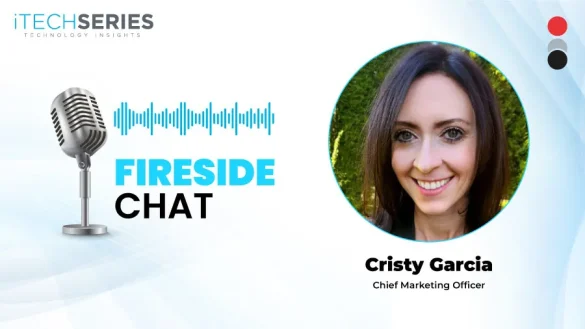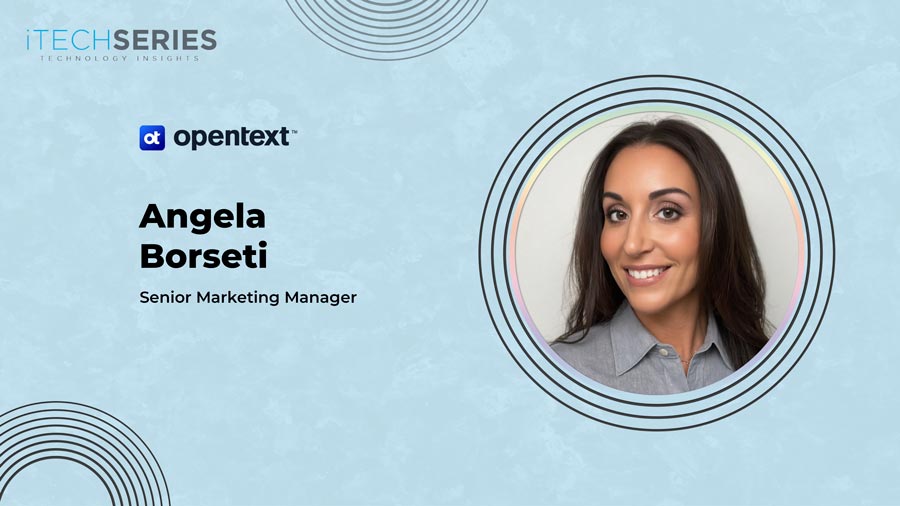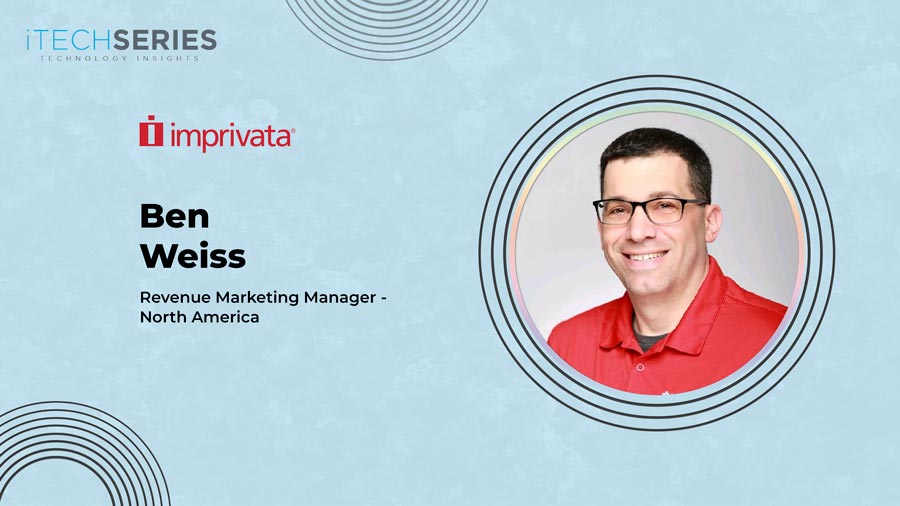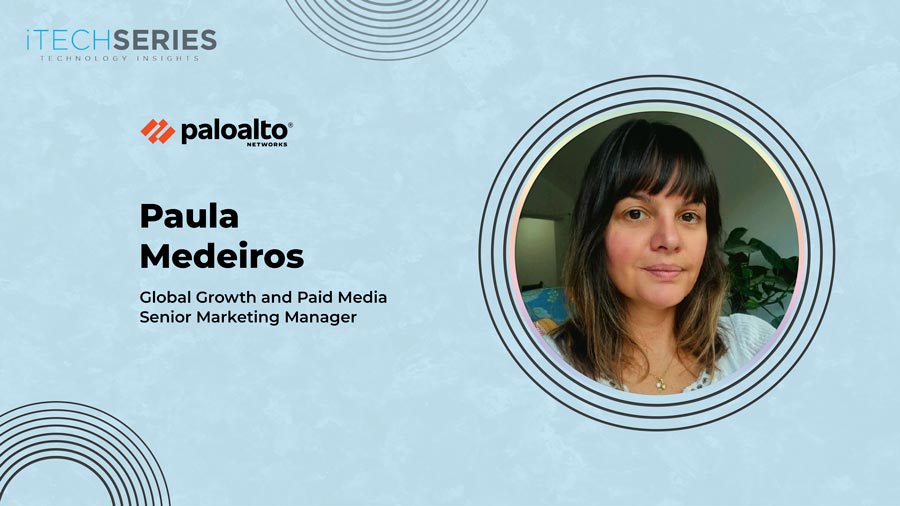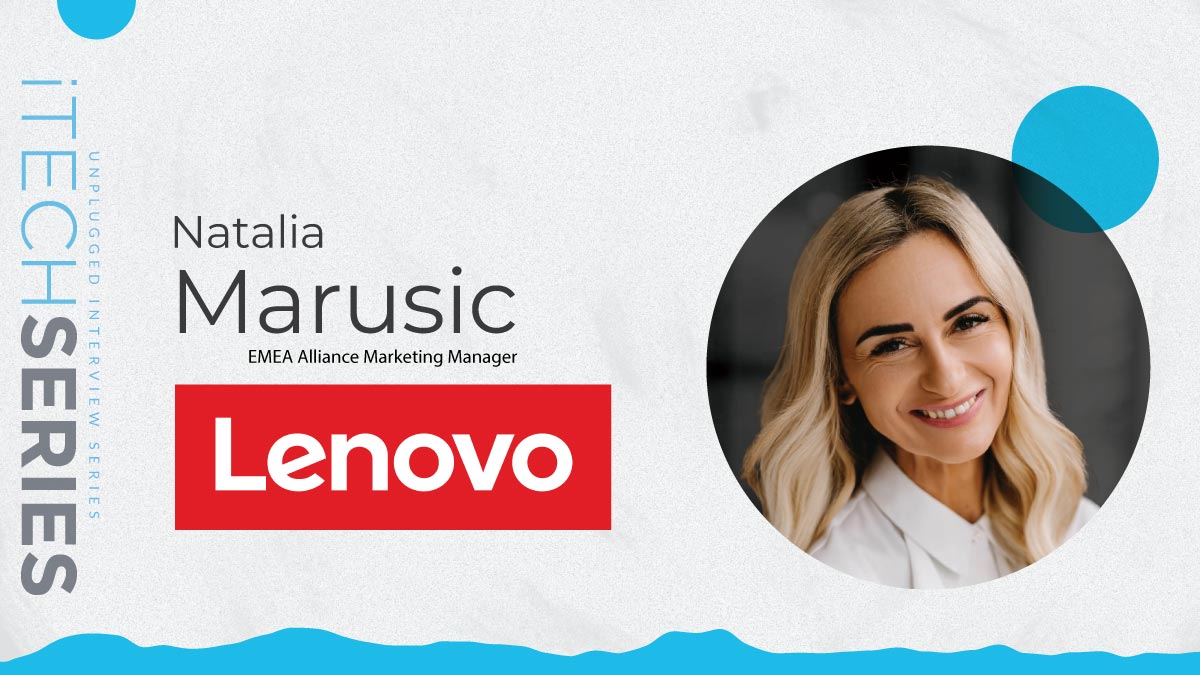Emily Parker, Director of Inside Sales at Insider, discusses sales development techniques and leadership with iTech Series.
We are delighted to have you in this interview series, Emily. Tell us about yourself and your role as Director of Inside Sales at Insider.
Thank you for having me. I am Emily Parker, Director of Inside Sales at Insider. My primary focus is on building and leading a world-class SDR team, driving a high-quality pipeline to support the growth of our business. We work on enabling companies to enhance their personalisation and cross-channel customer experiences. My role involves strategising and implementing effective inbound and outbound sales development processes, mentoring my team, and ensuring we meet our targets while fostering a supportive and growth-oriented environment.
I am also the host of LeadHERs in Tech, a podcast showcasing the voices of inspirational women in Technology, and a Co-Founder of Sales Development Leaders, an interactive community of SDR leaders sharing knowledge and learnings.
Can you share more about your experience with building SDR career paths and how these drive high-performing teams?
Building structured SDR career paths has been a significant part of my career and a key factor in driving high-performing teams. Clear career paths drive performance by setting expectations, providing benchmarks for success, and enabling reps to envision their future. Most SDRs have goals to move into Account Executive (AE) positions, and typically, the step up from SDR to AE is a very steep learning curve. This is why building a safe space for SDRs to upskill themselves is crucial to ensuring success during that step in progression.
At Zencargo, the Sales Director and I worked together to create a 12-month academy for our SDRs transitioning into the sales team. This academy was designed to provide a structured learning environment where SDRs could develop the skills needed to succeed as AEs. It included comprehensive training on advanced sales techniques, product knowledge, and strategic selling. We also incorporated practical exercises, role-playing scenarios, and mentorship from experienced AEs to help bridge the gap between theory and practice. The academy was highly successful, leading to eight internal promotions into leadership, sales, customer success, and sales enablement roles within the first two years.
A crucial element is fostering a culture of promotion from within, which not only motivates the team but also ensures that you can retain top talent who is deeply familiar with your product, processes, and culture. SDRs can see their growth trajectory and know what skills they need to develop and what targets they need to hit to advance. This clarity helps to contribute to a more engaged and committed team and helps managers tailor their coaching to each individual’s career goals, providing more relevant and effective support.
How do you believe natural curiosity contributes to the success of salespeople, particularly in engaging prospects?
Natural curiosity is a crucial trait for successful salespeople. It drives them to ask the right questions, understand their prospects’ unique needs and pain points, and seek innovative solutions. Curiosity leads to deeper, more meaningful conversations, allowing salespeople to build stronger relationships and trust with their prospects. This not only helps in engaging prospects more effectively but also in identifying opportunities that might otherwise be overlooked.
For leaders, recognising and valuing natural curiosity during the interview process is equally important. It is essential to look for candidates who demonstrate an eagerness to learn and a genuine interest in understanding complex problems. During interviews, I often look for signs of curiosity through candidates’ questions and enthusiasm for discussing industry trends and challenges. By prioritising this trait, leaders can build teams that are skilled and inherently driven to explore new possibilities and innovate continuously. This focus on curiosity ensures a dynamic and forward-thinking sales force that can adapt and thrive in an ever-evolving market.
“Curiosity leads to deeper, more meaningful conversations, allowing salespeople to build stronger relationships and trust with their prospects.”
What strategies have you found most effective in building a resilient and adaptable sales team, especially in the face of market changes?
Building a resilient and adaptable sales team involves a few key strategies. First, continuous learning is crucial. Regular training sessions on sales skills and market trends help keep everyone sharp and ready to pivot when needed.
I don’t claim to have the answers to everything, so I promote an open communication environment where team members feel comfortable sharing their challenges and successes, which helps us tackle issues quickly and brainstorm solutions together. Leveraging data to drive decisions is also essential. By continuously analysing performance metrics, we can identify what’s working, what isn’t, and where we need to adjust our strategies quickly to stay ahead of the curve.
Investing in technology and tools that enhance productivity and streamline processes is also essential. Whether it’s CRM systems, sales enablement platforms, or automation tools, having the right technology helps the team work more efficiently and effectively. Fostering a supportive and inclusive culture makes a huge difference. Recognising achievements, offering constructive feedback, and promoting a healthy work-life balance contribute to a motivated and resilient team.
You talk about the role mentors and coaches play in helping individuals navigate career transitions effectively. Could you describe your own experience with having the right mentor?
Having the right mentor has been invaluable in my career. Early on, I was fortunate to have a mentor who not only provided guidance and advice but also challenged me to step out of my comfort zone. This mentor helped me navigate critical career transitions, offered insights based on their own experiences, and provided the encouragement needed to take on new challenges. This relationship highlighted the importance of having a mentor who understands your goals, offers constructive feedback, and supports your professional growth.
Most people think a mentor needs to be a few steps ahead of you and within the same career path or role. However, the true value of mentorship lies in finding someone who can support you with your immediate needs. They don’t always need to be more senior or within the same industry. What matters most is finding someone who aligns with your current developmental goals, whether that’s improving a specific skill, gaining confidence, or navigating a complex project.
Before transitioning into a sales leadership role, what are some must-have skills and mindset shifts?
Transitioning into a sales leadership role requires a shift from a solely individual contributor mindset to a team-centric approach. Key skills include strong communication, strategic thinking, and the ability to inspire and motivate others. It’s essential to develop a deep understanding of sales processes and how to measure performance within them so you can use this data to make informed decisions.
Embracing a mindset of continuous learning and adaptability helps in a sales leadership role. For anyone stepping up and taking on more responsibility, you have to expect to fail before you succeed, so being open to feedback is crucial throughout this transition.
What’s your advice for budding sales professionals on developing their personal brand?
It can be really scary to think about building your brand and putting yourself out there. The key is to start with authenticity. Think about what makes you unique – your strengths, values, and passions. Your personal brand is a reflection of who you are, and it will evolve as you do. Step by step, you’ll find your voice and your place in the industry. Remember, it’s okay to start small. Post regularly, even if it’s just a short reflection or sharing an interesting article you found useful. Building a brand is a gradual process, and consistency is key.
One of the best platforms to build your personal brand is LinkedIn. It doesn’t have to start with you posting your own content. Engaging with industry content, participating in discussions, commenting on relevant posts, and actively networking can help you build a good reputation and build confidence before sharing your thoughts more publicly. When you are ready to share your insights, successes, and professional experiences, you don’t have to be an expert from day one. Share what you’re learning, the challenges you’re facing, and how you’re overcoming them.

Insider is a platform that allows business marketers to customise interactions across Web, Email, SMS, and messaging applications, integrate consumer data, and use AI intent engines to forecast behaviour. Reaching unicorn status, Insider is trusted by over 1,200 worldwide enterprises, including prominent Fortune 500 corporations, and is acknowledged as a leader in the Forrester Wave and Gartner Magic Quadrant for customisation.
A sales marketing leader with over 12+ years of experience, Emily Parker focuses on improving personalisation and cross-channel customer experiences while building a world-class SDR team at Insider. She is passionate about creating and leading structured sales development teams where sales reps can develop lifelong skills and set themselves up for successful careers, driving a high-quality pipeline to support business growth.



